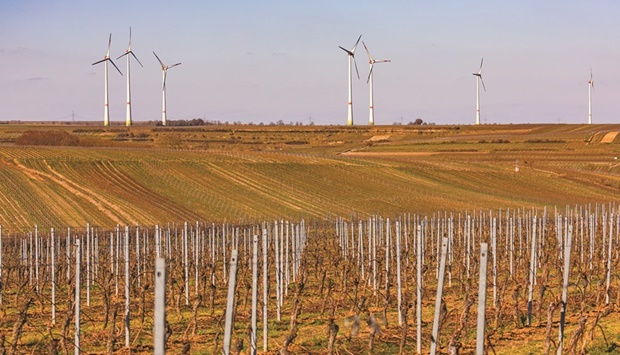The Russia-Ukraine conflict may accelerate the march towards decarbonisation despite concerns the war could put the issue on the backburner, the Al-Attiyah Foundation discovers in its latest Energy Industry report titled ‘Implications of COP26 on the Fuel Mix.’
The 26th UN Climate Change Conference of Parties (COP26), held in Glasgow in late 2021, was hotly anticipated. The summit was delayed by a year due to the Covid-19 pandemic and expectations for substantive results, such as ‘consigning coal to history’ and increasing climate finance to support climate action in the least developed countries, were high.
After frenetic last minute negotiations, diplomats from nearly 200 countries struck a major agreement aimed at intensifying efforts to fight climate change. Pledges which drew the most attention were the phase down of coal and fossil fuel subsidies, end of international financing for fossil fuels, accord on zero emissions vehicles, global methane reductions, and the financial alliance for net zero.
However, since Russia launched its “special military operation” in Ukraine on February 24 and the subsequent sanctions by the United States and its allies, fears surrounding energy security and rising oil prices have escalated globally.
Soon after the conflict began, one of Europe’s biggest importers of Russian oil, Germany, froze plans for the opening of the Nord Stream 2 gas pipeline and the US and UK announced it was banning Russian oil. In May, further sanctions were announced with the European Union confirming it will phase out imports of Russian oil in six months and refined products by the end of 2022.
The price of crude oil soared from $89 per barrel on February 25 to $119 on March 8, and despite some drawdowns in April, the price on May 17 stood at $115. Gas prices, which are indexed to the global oil price, have also experienced wild growth in the last few months.
The Russia-Ukraine conflict and its ramifications could act as a wakeup call for Europe and all countries that need secure energy resources. Sky high energy costs have led countries to realise that they can no longer simply depend on imported fossil fuels, which may drive a shift away from fossil fuels altogether.
The crisis has reinforced Germany’s determination to get off fossil fuels entirely, and to accelerate the Energiewende – the clean energy transition it began some 30 years ago. After little more than 100 days in office, Germany’s new government has presented what it calls the “biggest energy policy reform in decades” to massively increase the buildout of renewable energies. The legislation includes plans to give up coal entirely by 2030, eight years earlier than the target set by the previous government. It now aims for Germany to get 80% of its electricity from renewable energy by then, up from the previous goal of 65%.
Elsewhere, French President Emmanuel Macron, during his election campaign, pledged that France would be “the first major nation to abandon gas, oil, and coal.” Austria, even more dependent on Russian energy than Germany, is pouring money into subsidies for renewable energy. Poland, one of Europe’s heaviest coal consumers, is investing heavily in offshore wind.
Despite encouraging legislation and promises from some of Europe’s biggest economies in the wake of the conflict, concerns remain that countries may put climate change mitigation further down on their list of priorities while they focus on securing sufficient supplies of fossil fuels in the immediate term. This in turn could affect the implementation of pledges from COP26 and the time frame for phasing out the use of fossil fuels under the Paris Agreement on climate change and the goal of limiting global warming to 2°C.
*This article was supplied by the Abdullah bin Hamad Al-Attiyah International Foundation for Energy and Sustainable Development.
Business / Business
A wake-up call? Russia-Ukraine conflict could accelerate renewable energy adoption

Wind energy and wind turbines are part of the Energiewende u2013 the clean-energy transition that began some 30 years ago u2013 in Germany. This picture was supplied by the Abdullah bin Hamad Al-Attiyah International Foundation for Energy and Sustainable Development.
